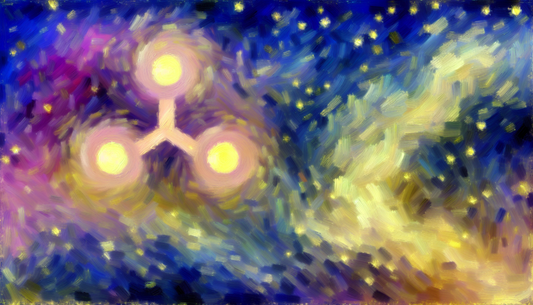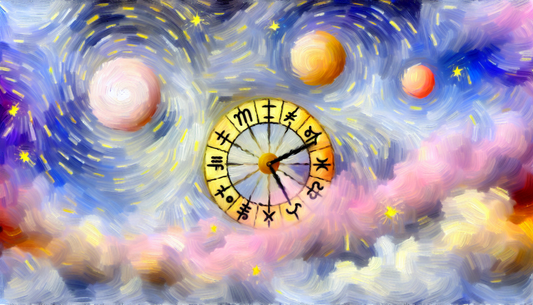Astrology has long been a source of fascination, guiding people in understanding themselves and their world through the positions of celestial bodies. Throughout history, civilizations have turned to the stars to help explain the mysteries of life, and ancient Egypt, Greece, and Rome were no exception. Each of these cultures had their own unique interpretations of astrology, which played crucial roles not only in their spirituality but also in their daily lives and decision-making processes.
The Role of Astrology in Ancient Egypt

The most well-documented astrological practice in Egypt was the use of the "decans," which are 36 groups of stars that rise consecutively over the course of the night. Each decan was associated with specific deities and had its own characteristics. By following the decans, Egyptians could track the passage of time and predict seasonal changes, but they also used them for divination, drawing connections between the stars and human affairs.
Moreover, astrology in Egypt was integral to the pharaoh's power. Rulers often consulted astrologers to determine the right time for warfare, monumental projects, and other significant events. The Egyptians believed that aligning their actions with cosmic timings could ensure success and favor from the gods.
Greek Contributions to Astrology

The Greeks expanded upon the astrological knowledge passed down from the Egyptians and Babylonians, infusing their unique philosophy and scientific inquiry. Figures like Ptolemy, a second-century astronomer and astrologer, were instrumental in crafting astrological frameworks that are still referenced today. His work, "Tetrabiblos," organized astrological principles into a system that combined both mathematical and philosophical aspects.
Astrology in ancient Greece was not confined to the elite. People from all walks of life sought guidance from astrologers for everything from agricultural planning to personal relationships. Astrology became embedded in daily life, influencing decisions both minor and monumental. The Greeks revered the Zodiac, which divided the sky into twelve sections, each ruled by a different sign, thus attributing various characteristics and destinies to individuals based on their birth dates.
Another significant contribution of the Greeks was the distinction between "natal astrology," which focused on an individual's birth chart, and "mundane astrology," which dealt with events affecting nations. This duality allowed for a comprehensive understanding of how celestial movements could reflect both personal and societal trends.
The Influence of Roman Astrology
The Romans adopted and adapted Greek astrological practices, making them essential to their culture. By the time astrology reached Rome, it had evolved into a sophisticated and widely endorsed system that permeated various facets of life. Political leaders and emperors frequently utilized astrology to navigate the complexities of governance and warfare, often consulting astrologers before public events or important decisions.
Roman astrology was characterized by a more systematic approach, incorporating detailed charts that indicated the positions of the planets at a given moment, such as a person’s birth. This practice created a deeper understanding of individual personalities and destinies, leading to an increased interest in horoscopes and personalized readings.
An important figure in Roman astrology was Marcus Manilius, whose work, "Astronomica," provided a poetic view of the cosmos, highlighting the connection between the celestial and terrestrial realms. He spoke of the influence of the stars on human affairs, enriching the spiritual narrative of astrology during this era.
However, astrology was not without its controversies. The rise of Christianity and the shift in cultural perspectives led to periods in which astrology faced opposition. Nevertheless, it persisted and evolved, becoming a cornerstone of medieval thought and influencing various spheres, including medicine and psychology.
Conclusion: The Legacy of Ancient Astrology
Astrology in ancient Egypt, Greece, and Rome laid the groundwork for contemporary astrological practices. The blending of celestial observation and human experience shaped a worldview that connected the heavens with earthly life, offering a framework for understanding destinies through the cosmic lens.
Today, while modern science may challenge the validity of these ancient practices, the enduring appeal of astrology continues to resonate. Ancient beliefs and systems have transformed and adapted over centuries, yet the core idea that the universe may hold secrets about destiny and identity remains compelling for many.
As we look to the stars, we find ourselves connected to the ancient traditions that sought to understand our place in the universe. Those remarkable civilizations laid the foundations for astrology as we know it, reminding us that while times change, the quest for self-understanding and cosmic connection remains a timeless pursuit.















